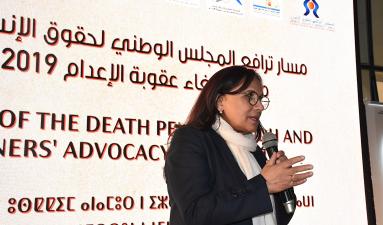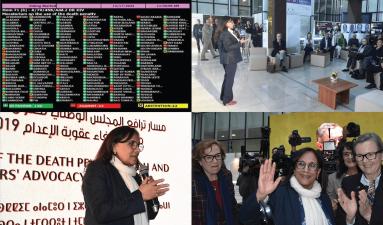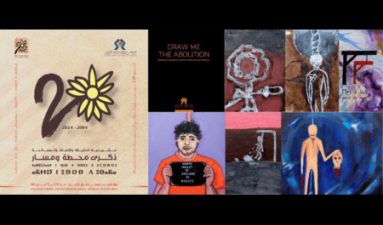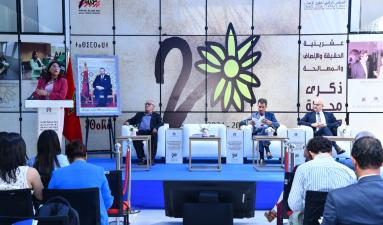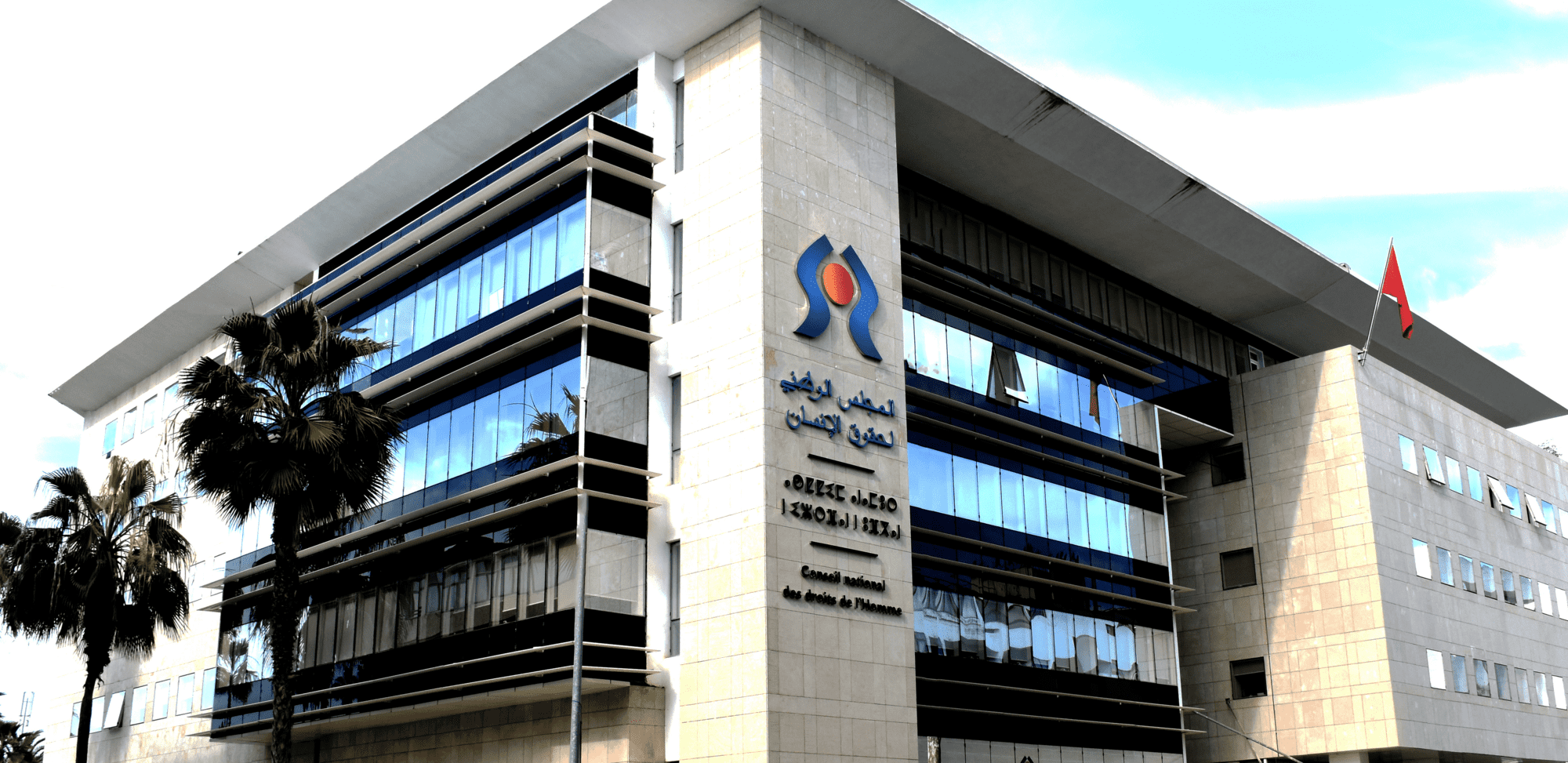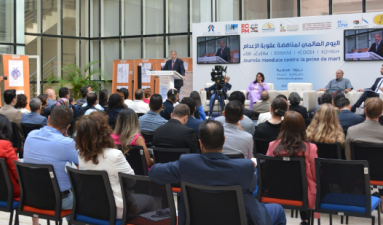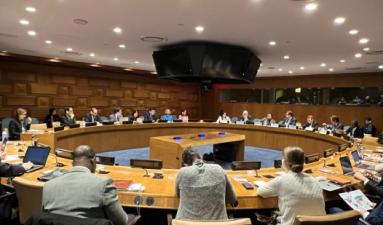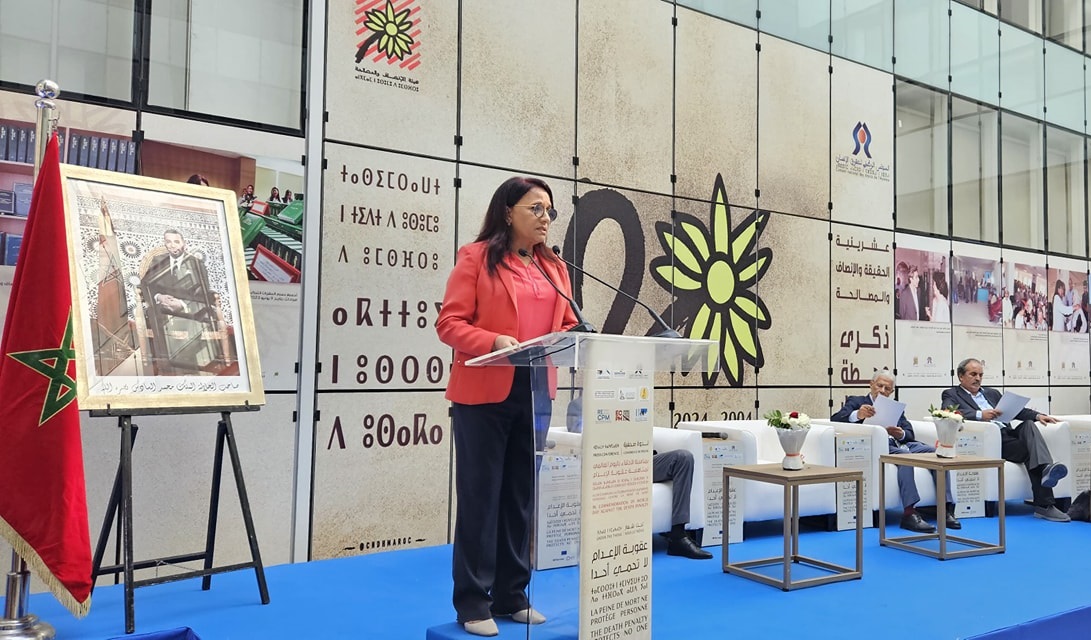
Ms. Amina Bouayach, Chairperson of the National Human Rights Council (CNDH), underscored that the right to life is "an absolute right that we will not accept to be violated under any circumstances and pretext." She urged the international community to intervene to protect and uphold the right to life in the context of unprecedented attacks occurring in the Middle East. Ms. Bouayach called on for an immediate and sustainable cessation of fire to protect civilians to ensure their right to life.
This was part of her statement at the press conference organized by the CNDH on Thursday, October 10, 2024, at the CNDH’s headquarters in Rabat, Morocco, to commemorate the World Day Against the Death Penalty. The event was organized in partnership with the Moroccan Coalition for the Abolition of the Death Penalty (CMCPM), the Moroccan Prison Observatory (OMP), and the Together Against the Death Penalty Association “Ensemble contre la peine de mort” (EPCM), in addition to national abolitionist networks of parliamentarians, lawyers, journalists, professors and entrepreneurs, etc.
In this context, Ms. Bouayach emphasized that abolitionists recognize that “the path we are on requires a long journey to dismantle the narratives used to justify the continuation of the death penalty. We will succeed in changing these justifications, driven by our persistence and deep determination to abolish this practice, while our ambition to preserve life is even deeper."
She added that suspending the death penalty while keeping it in the law is more severe and harsher than executing it, given the psychological and social impact of torture resulting from this suspension. Ms. Bouayach reiterated the call of the CNDH and its partners to ensure that those sentenced to death and their families are not left in the harsh condition of waiting, which can lead to psychological repercussions and social consequences that may even surpass those of the actual execution. She also stressed in the same context the conviction of abolitionists that "the death penalty does not protect anyone… and its execution does not guarantee reassurance for the families of victims or the security of society."
The CNDH Chairperson emphasized that the foundation of the CNDH’s advocacy for the abolition of the death penalty rests on the inherent and absolute nature of the right to life, which underpins all other rights. She highlighted the CNDH’s role as a national institution dedicated to protecting this fundamental right and called upon legislators to ensure that legal provisions align with Article 20 of the Constitution, as well as with the covenants and agreements ratified by Morocco.
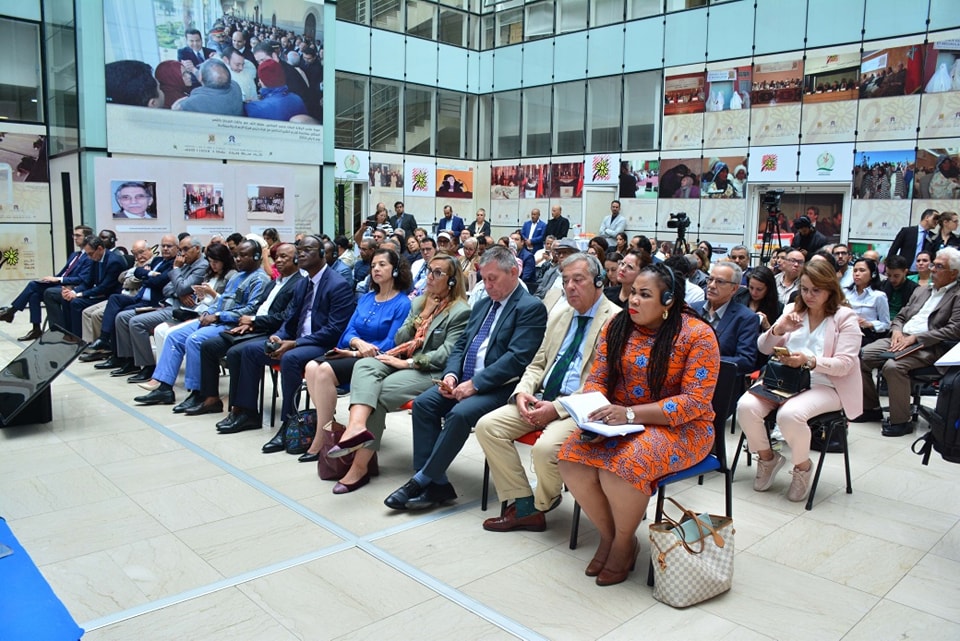
In the context of the CNDH’s commemoration of the twentieth anniversary of the Equity and Reconciliation Commission (IER), Ms. Bouayach expressed her hope that Morocco would take steps to ratify the Optional Protocol to the International Covenant and vote in favour of the international resolution to suspend the death penalty during the Third Committee Meeting next December.
On behalf of the CMCPM, Mr. Abderrahim Jamai, lawyer, highlighted that the capital punishment carries significant political, legal, legislative, judicial and cultural risks, which are often overlooked by proponents. He emphasized that the coalition has consistently raised awareness of these risks, referencing international conventions, the Moroccan Constitution, CNDH reports and international and national organizations reports.
Mrs. Christine Cassiers, Representative of the European Union Embassy in Morocco, stated that abolishing the death penalty contributes to enhancing human dignity and protecting human rights.
Mrs. Aurélie Plaçais, Executive Director of the World Coalition Against the Death Penalty (WADP), participated remotely in this event and expressing her congratulations to Morocco on its progress towards abolition. She called on Morocco to vote in favor of the UN resolution advocating for a moratorium on the death penalty, emphasizing that this represents a crucial step towards full abolition and the removal of death sentence provisions from criminal law, in response to the demands of civil society and human rights organizations.
Mr. Abdallah Mouseddad, OMP Representative, emphasized that the Observatory is effectively engaged in national, regional and international efforts to advance the abolition movement and to stop violations of the right to life as the highest and most sacred right recognized by international human rights standards. He reiterated the OMP commitment to continue advocacy efforts before international mechanisms, such as the Human Rights Council and treaty bodies, to enhance the protection of the right to life.
Mr. Richard Sédillot, ECPM representative, took part in this event remotely and praised Morocco’s significant role in promoting abolition in the region, noting encouraging signs within Moroccan society regarding this issue. He affirmed that the ECPM will continue supporting bodies advocating for abolition and urged the Moroccan government to accelerate the process of abolishing the death penalty, following the example set by several other countries.
Representatives from abolitionist networks, including parliamentarians, lawyers, professors, journalists and entrepreneurs, unanimously emphasized the significance of commemorating this day to raise awareness of the right to life, as enshrined in the Kingdom’s Constitution. They reaffirmed their commitment to abolishing this penalty and continuing their advocacy efforts to eradicate this inhumane penalty.


